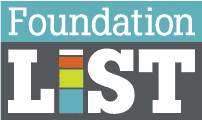Nonprofit Job Search Tips: Resume Improvement
If you are like most job seekers you have not put enough time into your resume.
Q: Have you had two other people proof your resume? Have you written detailed skills sections? Have you listed who you reported to in each of your past positions?
If not, you may wish to considering the following to improve your resume. No mater who you are (even an experienced recruiter) everyone has room to improve their resume.
Use Skills Sections
The truth is the skills sections are useful to show that you can form a resume that explains your background as applied to the job description. You should have applicable skills sections: research skills, writing skills, finance skills, budgeting experience, and so on as needed for your resume and the job. Using skill sections is one of the most impactful nonprofit job search tips you can utilize that truly works!
Use A Word Template
In all word and programs there are pre-made templates that you can use. Do that, and don’t try to design your own unless you have amazing with publisher and are graphic artist – otherwise it will only make you look quirky. This is a free resource and a very good idea.
Resume writing should be treated like a game of red light – green light. Start at the top of your resume and each line on it, from the top down should be related to the exact responsibilities of the position you are applying for.
Thus, if you are like many job seekers that may not have exactly held the title you are applying for in the past, adding skill sections to showcase you have the exact skills needed is tantamount to your success.
Most all position descriptions can be boiled down to the three most important requirements for the role. If you can first figure out what three requirements are most important in the position you are applying for (before you apply) then list skill sections for each one, it significantly improves your chance of gaining an interview.
For example, if you are applying for an executive assistant role, the three areas you would want to list as skill section would be: Writing, Scheduling/Coordination, and Organization.
Thus, by adding three sections: (1) Writing/Editing Skills- with four to five bullet points underneath; (2) Scheduling/Coordination Skills; and Organizational Skills. Each with with four to five bullet points underneath them.
Looking like this as an example, but make your own and relate to the needs of the position you are applying for:
Writing/Editing Skills
- In-depth business and email writing experience.
- Deep knowledge of editing and business writing.
- Passionate writing and concise communicator .
- XYZ
EA Scheduling/Coordination Skills
- Points that describe how you have supported executives in the past.
- Points on how you can coordinate complex travel and schedules of multiple executives.
- XYZ
- Just one more:)
Organizational Skills
- Adept organizational and project management abilities
- three years of experience leading complex administrative and research projects
- XYZ
- One more, you can do it!
Popular Things Done Wrong On A Resume Or During The Process:
- Resume is not spelled Re’sume’ using italics, and do not use contractions on your resume or cover letter. They are a no-no.
- Objectives are not needed.
- The length no longer matters. We are not in the 80’s any longer the one page resume is a thing of the past. The more info the better as long as you are not long winded. Just keep it under 3 pages.
- Do not misspell the name of the person you are sending to.
- Try not use a template for your cover letter – and if so make sure to change all the needed areas on it.
- Never use cursive or odd fonts or colors. Stick to the normal.
- Do not include a picture – its a red flag.
- Make sure to write a full page for your cover letter.
- Follow up in a professional and courteous manner about your application.
- Do not use general words or language describing yourself like organized, motivated, team player, and so on. We want you to show us this in other ways, not on your resume.
- Never show up too early or be late at all for your interview. Five minutes before your time is perfect. Never be late even for one minute. Showing up at 12:01 for a 12:00 o’clock interview should not be done – and reflects poorly. Motivated candidates show up early – but not 20 minutes before, that is way too early.
Remember: Nonprofit Resumes Differ
We want to leave you with one last important tip, don’t listen to random people about your resume. Most people, even the individuals that think that they know about resumes are wrong. Only recruiters, and the Exact HR Director reading your resume are a strong judge of your current word smith abilities.
Here is the deal. Nonprofit resumes are different. In the corporate world it is important to only have your profile, skills, and experience. But in the nonprofit world they also want to see some of your devotion to their mission displayed on your resume.
This, does not give you license to use unprofessional tones or language in your resume. Never us less than formal language, or talk about yourself in the third person on your resume.
What you need to add to be a strong nonprofit candidate are sections for Volunteering, Continuing Education, Writing, and Interest sections. These are the sections for those of you think on nonprofit prior experience you will need to buff up, in order to retain the interview.
Think about what books you have read that relate to the nonprofit, what magazines or periodicals, or websites that pertain to their mission. Think about where have you volunteers over the years or given money to.
Top Nonprofit Job Search Tips:
(The secret to nonprofit job seeking)
- Always cast a wide net.
- If you build it, they can come. (Instead of simply posting your resume on a Web site, take it one step further and design a physical portfolio, or Web site or online portfolio, this makes you stand out more than other candidates very quickly if it is done professionally).
- Always have more than one person read and edit your resume and cover letter!
- Always follow-up with phone calls and emails in a professional manner that effectively communicates
your interest in a position without being too demanding. - Always be patient, the hiring managers are busy and will normally always get back to you.
- If you are not getting a good response from your resume, likely something is wrong and you may wish to
consult a job coach or mentor. - Informational meetings can and do lead to job offers.
- Don’t be afraid to ask for advice for what you want.
- Do decide specifically what position you want; people that know what they wish to do always get the job.
Even if you are not sure, pick something. - Volunteering where you want to work is the fastest way to get hired there.


